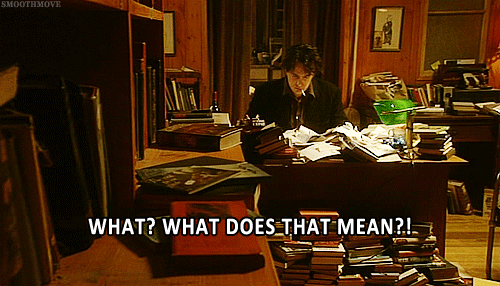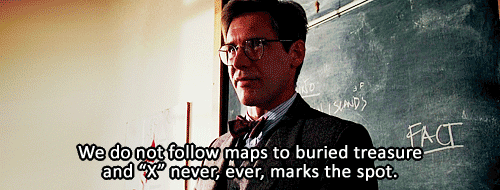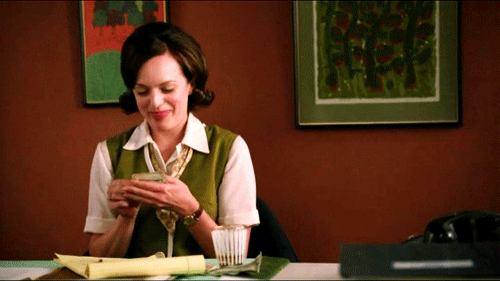You’ll read plenty of advice about money (unless you have a laissez-faire attitude and don’t much care). Essentially, though you can distill all this advice into some key points that will hold you in good stead throughout your life, whether you have a little money or a lot.
1. Understand Your Spending Habits
 Unless you know what household and personal expenses you've actually got to cover, you won't know how much spare cash you have to spend, save or invest. Sounds obvious, but most of us have no idea how much we spend each week on food, heating, going out, clothing etc. You don't have to pull your belt tighter and feel deprived. It's just a question of seeing where your money goes and how small economies here and there will leave you with spare cash you could invest rather than squander. Set up a realistic budget and when you have disposable income, build in savings and the occasional treat or splurge.
Unless you know what household and personal expenses you've actually got to cover, you won't know how much spare cash you have to spend, save or invest. Sounds obvious, but most of us have no idea how much we spend each week on food, heating, going out, clothing etc. You don't have to pull your belt tighter and feel deprived. It's just a question of seeing where your money goes and how small economies here and there will leave you with spare cash you could invest rather than squander. Set up a realistic budget and when you have disposable income, build in savings and the occasional treat or splurge.
2. Create an Emergency Fund
 It's hard to think ahead and save for a rainy day, if you're living from hand to mouth, from pay check to pay check. But what do you do when the worst happens, your car breaks down, a burst water pipe floods your home or you have to pay for hospital treatment? You can't plan ahead for everything, but you can create a savings account that will help you stay afloat in a crisis. Aim to squirrel away at least six months' worth of after-tax pay. That sounds like a lot, but taken in little steps it's achievable. Save a small amount from your pay check each month into a special savings account. Have a garage sale or de-clutter your house and advertise old clothes, toys, CDs or other household stuff on eBay or similar online outlets and stash that money away in your rainy day fund.
It's hard to think ahead and save for a rainy day, if you're living from hand to mouth, from pay check to pay check. But what do you do when the worst happens, your car breaks down, a burst water pipe floods your home or you have to pay for hospital treatment? You can't plan ahead for everything, but you can create a savings account that will help you stay afloat in a crisis. Aim to squirrel away at least six months' worth of after-tax pay. That sounds like a lot, but taken in little steps it's achievable. Save a small amount from your pay check each month into a special savings account. Have a garage sale or de-clutter your house and advertise old clothes, toys, CDs or other household stuff on eBay or similar online outlets and stash that money away in your rainy day fund.
3. Don't Run up Credit Card Debt
 Among the best ever money tips are those that tell you to lock up your credit card. Credit card spending has a lot to answer for. You might as well flush money down the toilet, because mindless spending on your credit card can take you years to clear. All credit card debt can be regarded as "bad debt" because it is not related to an appreciating asset like a home or works of art or student loan. If you have run up balances pay off the credit card with the highest interest rate first while making minimum payments on your other cards. In the meantime, consider going on a cash diet so you don’t rack up additional debt in the process.
Among the best ever money tips are those that tell you to lock up your credit card. Credit card spending has a lot to answer for. You might as well flush money down the toilet, because mindless spending on your credit card can take you years to clear. All credit card debt can be regarded as "bad debt" because it is not related to an appreciating asset like a home or works of art or student loan. If you have run up balances pay off the credit card with the highest interest rate first while making minimum payments on your other cards. In the meantime, consider going on a cash diet so you don’t rack up additional debt in the process.
4. Monitor Your Credit Score
 There are numerous ways in which you can obtain your credit score for free or for a tiny amount of money and monitoring it can make all the difference to your life, especially if you were planning to sign a new apartment lease, apply for a car or home loan. Your credit score would be the one factor that decides whether or not you get the keys to that dream apartment/home or go away empty handed. Look at your credit card statement, it may show your credit score. If not, you can see it for free on creditkarma.com. Paying all your monthly outgoings in full and on time builds up your credit score, but you also need to pay attention to utilization, which means the percentage of your credit line you're using per annum. The smaller the percentage, the better for your credit score.
There are numerous ways in which you can obtain your credit score for free or for a tiny amount of money and monitoring it can make all the difference to your life, especially if you were planning to sign a new apartment lease, apply for a car or home loan. Your credit score would be the one factor that decides whether or not you get the keys to that dream apartment/home or go away empty handed. Look at your credit card statement, it may show your credit score. If not, you can see it for free on creditkarma.com. Paying all your monthly outgoings in full and on time builds up your credit score, but you also need to pay attention to utilization, which means the percentage of your credit line you're using per annum. The smaller the percentage, the better for your credit score.
5. Get to Grips with Your Student Loans
 Understanding the complexities of your student loan may seem like a nerdy thing when you're just starting out at 20. However, student loans are an enormous financial burden for young people and can be very difficult to pay off. Just over one third of borrowers manage to make full payments on time, which means two thirds of ex-students don't! For those with public, federal loans there are several different programs and repayment options, so talk to your lender and ask if you can change your payment plan to something affordable.
Understanding the complexities of your student loan may seem like a nerdy thing when you're just starting out at 20. However, student loans are an enormous financial burden for young people and can be very difficult to pay off. Just over one third of borrowers manage to make full payments on time, which means two thirds of ex-students don't! For those with public, federal loans there are several different programs and repayment options, so talk to your lender and ask if you can change your payment plan to something affordable.
6. Exploit All Your Benefits
 If your employment contract entitles you to certain benefits in addition to your take-home pay, be sure to use them! Health care, dental and retirement are all part of your remuneration package with your employer, so you are entitled to these benefits. If you ignore them, you could potentially be turning your back on thousands of dollars worth of benefits. For example, if your employer offers 404(k) matching, you can really maximize your contributions. Even saving $50 per month towards your retirement when you're still in your early 20's will make a huge difference to what you'll have when your 65+.
If your employment contract entitles you to certain benefits in addition to your take-home pay, be sure to use them! Health care, dental and retirement are all part of your remuneration package with your employer, so you are entitled to these benefits. If you ignore them, you could potentially be turning your back on thousands of dollars worth of benefits. For example, if your employer offers 404(k) matching, you can really maximize your contributions. Even saving $50 per month towards your retirement when you're still in your early 20's will make a huge difference to what you'll have when your 65+.
7. Don't Be Scared of Investing
 Don't be rattled by confusing terms like "liquidity", "bear market" or "dividend". You'll soon understand what they mean, for they are not difficult concepts to grasp. Although investing seems like something that older, wealthier people do, many schools have proved that 11-year-olds can invest money more successfully than many brokers can. If kids can do it, so can you! Companies like E-Trade and some banks' brokerages make it really easy to buy and sell stocks or currency.
Don't be rattled by confusing terms like "liquidity", "bear market" or "dividend". You'll soon understand what they mean, for they are not difficult concepts to grasp. Although investing seems like something that older, wealthier people do, many schools have proved that 11-year-olds can invest money more successfully than many brokers can. If kids can do it, so can you! Companies like E-Trade and some banks' brokerages make it really easy to buy and sell stocks or currency.
Money can’t buy happiness but looking after yours and being in control of it gives you peace of mind and one less thing in your life to worry about.
What’s the best money tip you’ve ever heard?